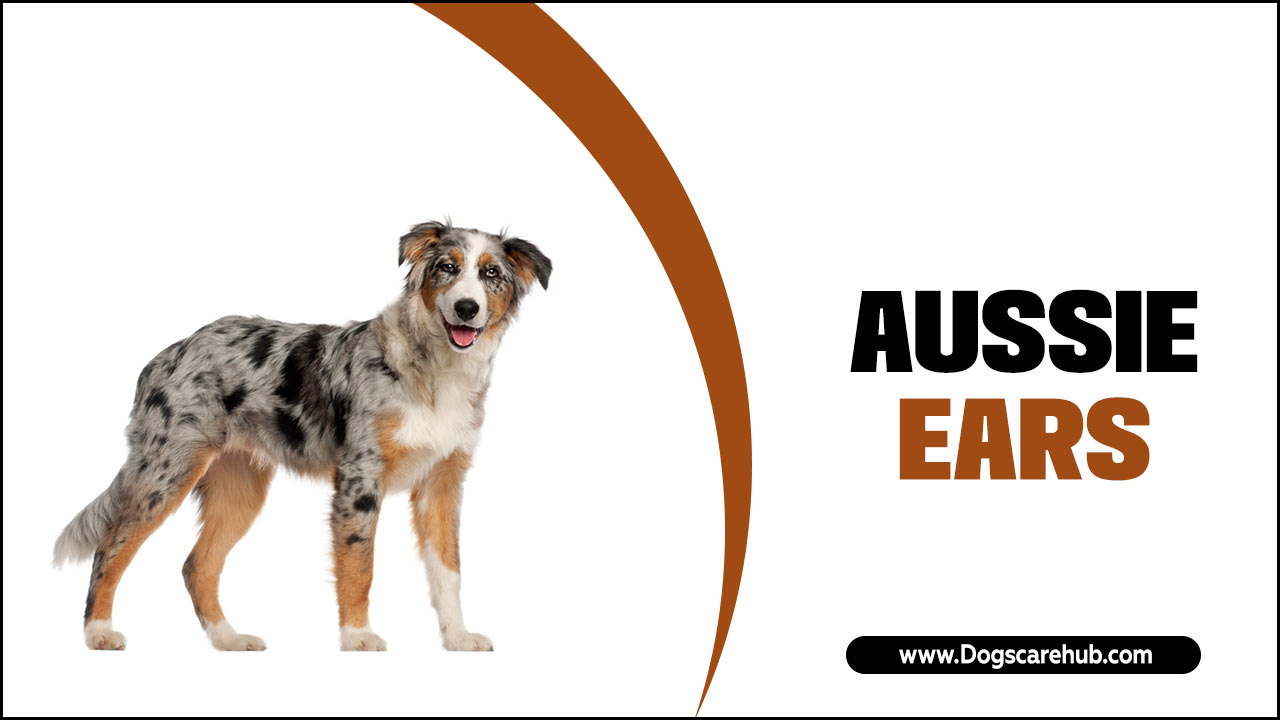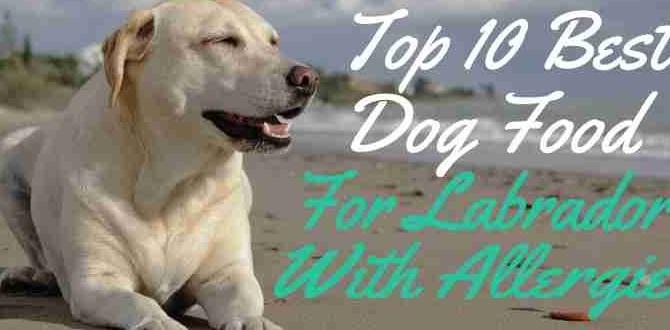Best Large Breed Digestion Dog Foods
For many dog owners, the well-being of their furry companions is paramount, and for those with larger breeds, ensuring optimal digestive health is a significant concern. Large breed dogs, with their more substantial physiques and often faster growth rates, can be more susceptible to various digestive issues. From sensitive stomachs to bloating and nutrient absorption challenges, the right diet plays a crucial role in keeping these magnificent animals healthy and comfortable.
Choosing the “best large breed digestion dog foods” isn’t just about finding a bag of kibble; it’s about selecting a carefully formulated diet that addresses the unique physiological needs of your big dog. This involves understanding the ingredients, the quality of protein sources, the types of carbohydrates, and the inclusion of beneficial additives like prebiotics and probiotics.
Understanding Digestive Needs in Large Breeds
Large breed dogs have specific dietary requirements that differ from their smaller counterparts. Their digestive systems are designed to process larger quantities of food, and their metabolism can be slower, making them more prone to weight gain, which can further exacerbate digestive problems. Furthermore, their rapid growth during puppyhood puts extra stress on their developing digestive tracts. Certain breeds are genetically predisposed to conditions like bloat (Gastric Dilatation-Volvulus or GDV), a life-threatening condition that can be influenced by diet and eating habits.
Symptoms of digestive upset in large breeds can manifest in various ways. These might include:
Vomiting or Regurgitation: Frequent or occasional vomiting can be a sign of intolerance to certain ingredients or a too-rapid eating pace.
Diarrhea or Loose Stools: Inconsistent stool consistency can indicate inflammation, malabsorption, or bacterial imbalances in the gut.
Gas and Bloating: Excessive flatulence or a distended abdomen can suggest poor digestion or fermentation of food in the gut.
Reduced Appetite or Picky Eating: A sudden disinterest in food can signal an underlying digestive discomfort.
Poor Coat Quality and Low Energy: Nutrient malabsorption due to digestive issues can lead to a dull coat and lethargy.
Key Components of Large Breed Digestion Dog Foods
When searching for the best large breed digestion dog foods, several key ingredients and formulations should be on your radar:
High-Quality, Digestible Protein: Look for single-source animal proteins like lamb, chicken, turkey, or fish. These are often easier to digest than mixed protein sources. Avoid generic “meat by-products” as their quality can vary significantly.
Wholesome Carbohydrates: Easily digestible carbohydrates like brown rice, sweet potatoes, and oats provide energy without overwhelming the digestive system. Some formulas may also include fiber sources like beet pulp, which aids in stool formation and promotes gut health.
Prebiotics and Probiotics: Prebiotics are non-digestible fibers that feed beneficial bacteria in the gut, while probiotics are live bacteria that directly contribute to a healthy gut microbiome. These are crucial for balancing gut flora and improving nutrient absorption.
Omega-3 and Omega-6 Fatty Acids: These essential fatty acids, derived from sources like fish oil and flaxseed, support overall health, including skin and coat condition, and can help reduce inflammation within the digestive tract.
Limited Ingredients: For dogs with particularly sensitive stomachs, limited ingredient diets (LIDs) can be highly beneficial. These formulas strip away common allergens and fillers, making it easier to pinpoint and avoid problematic ingredients.
Controlled Calcium and Phosphorus Levels: Specific formulations for large breeds will have carefully balanced mineral ratios to support healthy bone and joint development without contributing to developmental orthopedic diseases.
Top Dog Food Brands for Digestion for Large Breeds
Based on ingredient quality, formulation for large breed needs, and positive customer feedback regarding digestive benefits, several dog food brands for digestion for large breeds stand out. It’s important to remember that every dog is an individual, and what works for one may not work for another. Consulting with your veterinarian is always the best first step.
Hill’s Science Diet: They offer a “Sensitive Stomach & Skin” formula that is often recommended by veterinarians. It typically features highly digestible ingredients and added fiber to support gut health. They also have specific large breed formulas that incorporate digestive aids.
Royal Canin: Known for its breed-specific and condition-specific diets, Royal Canin offers formulas tailored for large breeds with digestive sensitivities. These often include a blend of fibers, prebiotics, and easily digestible proteins.
Purina Pro Plan: Their “Sensitive Skin & Stomach” line, including options for large breeds, utilizes highly digestible ingredients and often features probiotic solutions to promote a balanced gut microbiome.
Blue Buffalo: The “Blue Basics” limited ingredient diet line is popular for dogs with sensitivities. They offer grain-free and grain-inclusive options that focus on a single protein source and digestible carbohydrates, catering to large breeds with sensitive systems.
Wellness CORE: Their “Digestive Health” or “Simple” lines often feature natural, wholesome ingredients with added prebiotics and probiotics. They provide grain-free and grain-inclusive options suitable for large breeds.
Making the Transition to a New Food
Introducing any new food, especially one geared towards digestive aid, should be done gradually to avoid upsetting your dog’s stomach. A common recommendation is to start by mixing about 25% of the new food with 75% of the old food for a few days. Gradually increase the proportion of the new food and decrease the old food over a period of 7-10 days. Monitor your dog closely for any changes in appetite, stool, or energy levels throughout the transition.
Beyond Food: Holistic Approaches to Digestive Health
While selecting the best large breed digestion dog foods is crucial, incorporating other healthy practices can further support your dog’s digestive well-being. These include:
Feeding Schedule: Establish a consistent feeding schedule. Avoid free-feeding, as it can lead to overeating and digestive issues.
Slow Feeding Bowls: For dogs that eat too quickly, slow feeder bowls or puzzle toys can prevent them from gulping air, which contributes to bloating and gas.
Regular Exercise: Moderate, consistent exercise aids in digestion and overall health. Avoid strenuous activity immediately after meals.
Hydration: Ensure your dog always has access to fresh, clean water.
* Veterinary Consultations: Regular vet check-ups are essential for identifying any underlying health issues that might be contributing to digestive problems. Your vet can offer personalized dietary recommendations and medical advice.
By understanding the specific needs of large breed dogs and choosing from carefully formulated diets, you can significantly contribute to your dog’s comfort, health, and overall quality of life. Investing in digestive-friendly food is an investment in your beloved companion’s long-term well-being.
Meet Elyse Colburn, the devoted canine companion and storyteller behind the enchanting world of “Tales, Tails, and Adventures Unleashed.” A passionate dog enthusiast with a heart full of paw prints, Elyse Colburn shares heartwarming tales and insightful adventures, celebrating the joy, loyalty, and endless antics that make every dog a true hero. Join Elyse Colburn on this tail-wagging journey, where every post is a love letter to our four-legged friends.






